-
Home
- ISO 27017:2015
All Categories
- ISO 9001:2015
- IAF Register
- Organic certification
- ISO 14001:2015
- OHSAS 18001:2007
- ISO 27001:2013
- ISO 13485:2016
- ISO 50001-2011
- CE Marking
- ISO 15000 HACCP
- ISO 29990:2010
- ISO 22301-2012
- Lead Auditor Training
- ISO 29993:2017 Certification
- Other Services
- HSE MS
Quick Links
- About us
- CE Marking Certification
- Impartiality Statement
- Founder
- Quality Policy
- ISO Application Process
- Certified Client
- Accredited Certificate Need to be Converted
- History
Quick Links
- About us
- CE Marking Certification
- Impartiality Statement
- Founder
- Quality Policy
- ISO Application Process
- Certified Client
- Accredited Certificate Need to be Converted
- History
- CE Notified Body
- ISO 10002
- ISO 50001
- Low Voltage CE
- Responsible Care Management System
- IFS Food
- Global GAP
- Code of Integrity
- Use of Marks
- Key Elements of BCMS
- IAF Register of Accredited Certificate
- What are Key Documents required for Client as per ISO?
- IAF Register
Read More
ISO 27017:2015
iso 27017 Certification information security controls
ISO/IEC 27017:2015 provides the organization with a full, specialized framework to establish and maintain information security controls specific to cloud services. Based on the ISO/IEC 27001 standard, this new one brings about additional, more specific advice both to CSPs and to customers on how to go about information security. This helps bridge the gap for those operating in cloud computing environments as it identifies some unique challenges in such an environment and is therefore crucial to those wishing to protect sensitive information or mitigate risks effectively. ISO/IEC 27017 certification thus shows that an organization commits to secure cloud operations. It is the basis through which trust with stakeholders and clients is achieved since international best practices on securing cloud environments are shown to be followed. The ISO/IEC 27017 applies to any organization regardless of size or industry that is into cloud computing, whether they are a provider of cloud services or use them as part of their core operation.
Structure of the ISO/IEC 27017:2015 Standard
The ISO/IEC 27017:2015 standard is structured into several clauses, each providing essential guidance for implementing effective information security controls specific to cloud services. These clauses form a logical sequence to help organizations develop, maintain, and continually improve their cloud security practices.
• Clause 1 (Scope): Defines the scope of the standard, emphasizing its focus on information security and privacy for cloud services.
• Clause 2 (Normative References): Lists key standards, frameworks, and guidelines that support the effective implementation of ISO/IEC 27017.
• Clause 3 (Definitions and Abbreviations): Provides precise definitions of essential terms related to cloud security, ensuring consistent understanding and application.
• Clause 4 (Cloud Sector-Specific Concepts): Introduces concepts unique to cloud computing that are pertinent to information security.
• Clause 5 (Information Security Policies): Discusses the establishment and management of information security policies tailored to cloud services.
• Clause 6 (Organization of Information Security): Focuses on the governance structure necessary to manage cloud security effectively.
• Clause 7 (Human Resource Security): Addresses security aspects related to personnel involved in cloud services.
• Clause 8 (Asset Management): Covers the management of assets, including data and infrastructure, within cloud environments.
• Clause 9 (Access Control): Details controls to manage access to cloud-based information and services.
• Clause 10 (Cryptography): Provides guidance on the use of cryptographic controls to protect data in the cloud.
• Clause 11 (Physical and Environmental Security): Discusses measures to protect the physical infrastructure supporting cloud services.
• Clause 12 (Operations Security): Focuses on the procedures and responsibilities for managing cloud operations securely.
• Clause 13 (Communications Security): Addresses the protection of information in networks and communication links within cloud services.
• Clause 14 (System Acquisition, Development, and Maintenance): Provides guidance on securing systems throughout their lifecycle in the context of cloud services.
• Clause 15 (Supplier Relationships): Discusses managing security in relationships with suppliers and partners in the cloud ecosystem.
• Clause 16 (Information Security Incident Management): Focuses on detecting and responding to security incidents in cloud environments.
• Clause 17 (Information Security Aspects of Business Continuity Management): Provides guidance on ensuring business continuity with respect to cloud services.
• Clause 18 (Compliance): Addresses compliance with legal, regulatory, and contractual obligations related to cloud security.
This detailed breakdown ensures clarity and provides organizations with a comprehensive roadmap to implement cloud security in alignment with ISO/IEC 27017:2015.
Who Should Apply for ISO/IEC 27017:2015 Certification?
ISO/IEC 27017:2015 certification is highly relevant for any organization utilizing or providing cloud services, particularly those prioritizing robust information security measures. Organizations across multiple industries can benefit significantly from adopting this standard. Some key sectors include:
• Cloud Service Providers (CSPs): Companies offering public, private, or hybrid cloud solutions can demonstrate their dedication to secure and trustworthy services.
• Financial Services: Banks, insurance companies, and other financial institutions that rely on cloud infrastructure to manage sensitive customer data.
• Healthcare: Hospitals, clinics, and pharmaceutical companies using cloud services for patient data management and telemedicine.
• IT and Software Development Companies: Businesses developing and deploying applications on cloud platforms can strengthen their security posture with ISO/IEC 27017 certification.
• Government Agencies: Public sector organizations leveraging cloud solutions for improved operational efficiency and data storage.
• E-commerce Platforms: Online retailers managing customer data, payment information, and logistics through cloud services.
• Education and Research Institutions: Universities and research bodies using cloud platforms for data sharing and storage.
By implementing ISO/IEC 27017, organizations can mitigate risks, enhance their reputation, and meet regulatory requirements for secure cloud computing practices.
Benefits of ISO 27017 Certification
ISO/IEC 27017 certification delivers numerous advantages to organizations seeking to enhance their cloud security practices:
• Enhanced Cloud Security: Provides a robust framework for identifying, addressing, and mitigating risks specific to cloud environments.
• Customer Trust: Demonstrates a strong commitment to protecting client data, boosting confidence among customers and stakeholders.
• Regulatory Compliance: Ensures compliance with local and international data protection laws and cloud security regulations.
• Operational Efficiency:Streamlines security processes and reduces redundancies, improving overall service delivery.
• Risk Management: Proactively identifies and mitigates vulnerabilities, preventing potential security breaches and data losses.
• Competitive Advantage: Certification distinguishes organizations in the competitive marketplace by highlighting their dedication to secure cloud practices.
• Continuous Improvement: Encourages regular evaluation and adaptation of security measures to address evolving threats and vulnerabilities in the cloud ecosystem.
• Global Recognition: Demonstrates alignment with globally accepted cloud security standards, increasing credibility in international markets.
Eligibility Criteria for ISO 27017 Certification
To achieve ISO/IEC 27017 certification, organizations must meet several critical criteria, including the implementation of a comprehensive Information Security Management System (ISMS) and addressing specific cloud-related controls. Key criteria include:
• Established ISMS: Organizations must develop an ISMS that aligns with the requirements of ISO/IEC 27001 and incorporates cloud-specific controls outlined in ISO/IEC 27017.
• Cloud Security Risk Assessment: Conducting a detailed risk assessment to identify and address vulnerabilities specific to cloud environments.
• Leadership Commitment: Top management must demonstrate commitment to implementing and supporting cloud security practices.
• Documented Processes: Organizations need to maintain documentation for all cloud security policies, procedures, and practices.
• Ongoing Evaluation: Regular monitoring and assessment of cloud security measures to ensure their effectiveness and alignment with organizational objectives.
• Skilled Personnel: Adequate training and resources must be provided to personnel involved in cloud operations and security management.
Key Requirements Include:
• Documented ISMS with Cloud-Specific Measures
• Risk Management and Mitigation Strategies
• Defined Roles and Responsibilities
• Regular Performance Monitoring and Audits
• Continuous Improvement Initiatives
Mandatory Documents and Records for ISO 27017 Certification
To comply with ISO/IEC 27017 requirements, organizations must maintain a set of mandatory documents and records. These ensure effective implementation and demonstrate adherence to the standard.
Mandatory Documents:
1. Scope of the ISMS (Clause 4.3)
2. Information Security Policy (Clause 5.2)
3. Risk Assessment and Treatment Plan (Clause 6.1)
4. Statement of Applicability (Clause 6.1.3)
5. Cloud-Specific Security Controls (Clause 8.1)
6. Documentation of Roles and Responsibilities (Clause 7.2)
Mandatory Records:
1. Risk Assessments and Treatment Records
2. Evidence of Security Controls for Cloud Environments
3. Audit Logs of Cloud Service Activities
4. Incident Response and Recovery Records
5. Management Review Meeting Minutes
6. Training Records for Cloud Security Personnel
Non-Mandatory Documents (Examples):
1. Cloud Service User Access Policy
2. Incident Response Escalation Procedures
3. Data Backup and Recovery Plans
4. Supplier Monitoring Policies
5. Secure Data Disposal Policies
What is the Process for ISO 27017 Certification
The certification process for ISO/IEC 27017:2015 ensures that the organization’s cloud-specific security measures meet the standard's requirements. The process includes the following key stages:
• Stage One Audit: This preliminary audit reviews the organization's Information Security Management System (ISMS) documentation, focusing on cloud-specific security controls. Any gaps or potential areas of non-conformity are identified for correction.
• Stage Two Audit: An on-site audit evaluates the implementation and effectiveness of cloud security measures. This stage includes interviews with staff, observations of security practices, and reviews of relevant records to ensure compliance with ISO/IEC 27017:2015 requirements.
• Addressing Non-conformities: If non-conformities are identified during the audits, the organization must implement corrective actions. These solutions are verified by the certification body to ensure compliance before proceeding to certification.
• Certification Decision: After successful completion of audits and resolution of non-conformities, the certification body issues the ISO/IEC 27017:2015 certification.
• Surveillance Audits: Annual surveillance audits are conducted to ensure the continued compliance and effectiveness of the ISMS with cloud-specific controls.
• Recertification Audit: At the end of the three-year certification cycle, a recertification audit is conducted to verify ongoing conformity and renew the certification.
This systematic process ensures organizations maintain robust and secure cloud environments in compliance with ISO/IEC 27017:2015 standards.
Cost of ISO 27017 Certification
The cost of ISO/IEC 27017:2015 certification varies depending on factors such as the size of the organization, the complexity of cloud operations, and the geographical location. Major cost components include implementation costs, which involve developing and integrating cloud-specific security controls; audit fees, which cover charges for initial and surveillance audits; and certification fees, which include administrative expenses for issuing the certificate. For a customized quotation, organizations can submit the application form F-01 available on the TNV website. For further details, contact TNV at info@isoindia.org or submit inquiries through the website portal.
Integration of ISO 27017 with Other Standards
ISO/IEC 27017:2015, a cloud-specific information security standard, can be integrated with other management system standards to create a unified framework for organizational management. For instance, integrating ISO/IEC 27017 with ISO/IEC 27001 (Information Security Management System) enhances cloud security by aligning general information security practices with cloud-specific controls, ensuring a robust overall security posture. Integration with ISO 27701 (Privacy Information Management System) supports organizations in managing cloud-related privacy obligations, reducing risks of data breaches and regulatory non-compliance. Similarly, integrating ISO/IEC 27017 with ISO 22301 (Business Continuity Management System) ensures that cloud services remain secure and operational during disruptions, safeguarding business resilience. By combining ISO/IEC 27017 with other standards, organizations can streamline processes, minimize redundancies, and achieve comprehensive management objectives that support security, efficiency, and regulatory compliance.
Other Standards for Integration:
Apply for ISO 27017 Certification Online
To apply for ISO/IEC 27017:2015 certification online, organizations can submit their inquiry through TNV Certification Pvt. Ltd.’s website or send an email. TNV offers a streamlined application process to help organizations strengthen their cloud security practices. A detailed application form is available, allowing companies to provide essential information about their cloud operations, security practices, and areas of focus. TNV ensures comprehensive support throughout the certification journey, from the initial application to the successful issuance of the ISO/IEC 27017:2015 certificate.
Contact Us
To begin your ISO/IEC 27017 certification journey, contact TNV Certification Pvt. Ltd. for tailored support:
• Download Application Form: Visit our website to access form F-01.
• Submit Inquiry:Use the Contact Us section on our portal or email info@isoindia.org for detailed assistance.
TNV Certification Pvt. Ltd. offers a wide range of ISO certifications, helping organizations achieve compliance, build trust, and enhance operational efficiency. Take the first step toward secure and compliant cloud services today!
- ISO 27001:2022
- ISO 20000-1:2018
- ISO 21001:2018
- ISO 14001:2015
- ISO 45001:2018
- ISO 22000:2018
- ISO 50001:2018
- ISO 27701:2019
- ISO 55001:2014
- ISO 41001:2018
- ISO 37001:2016
- ISO 13485:2016
- ISO/IEC 42001:2023
- ISO 20121:2024
- ISO 37301:2021
- ISO 27017:2015
- ISO 9001-2015
- ISO 27035 Certification
- ISO 27032 Certification
- ISO 27018 Certification
- ISO 27040 Certification
- ISO 27050 Certification
- ISO 29100 Certification
Certificate
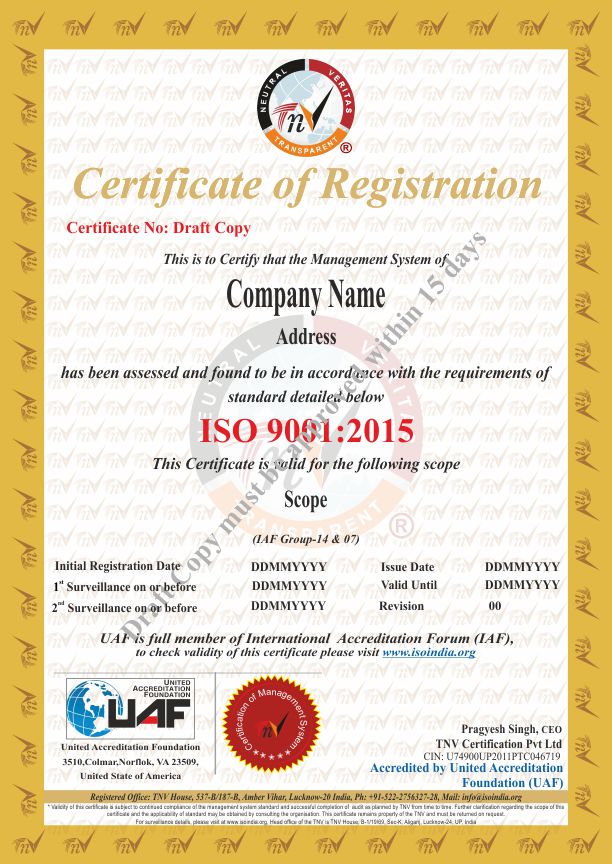
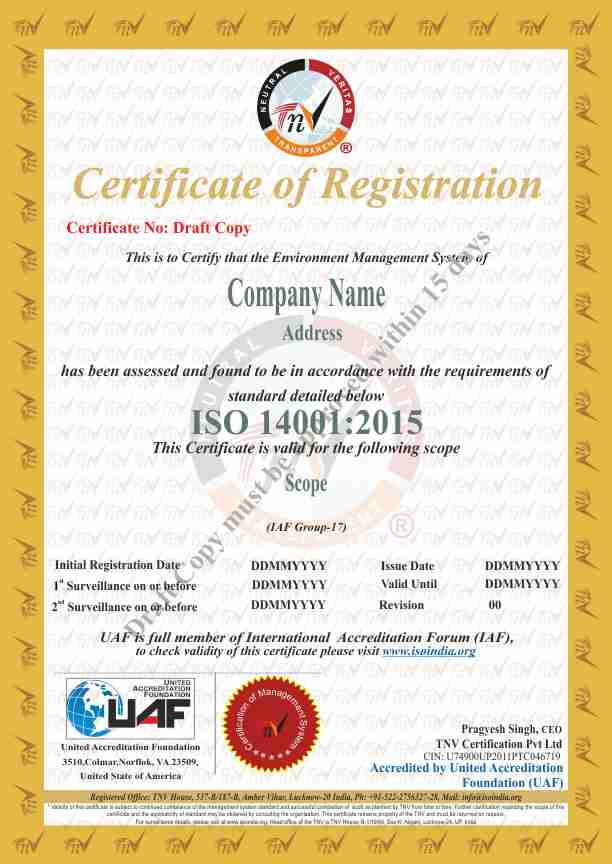
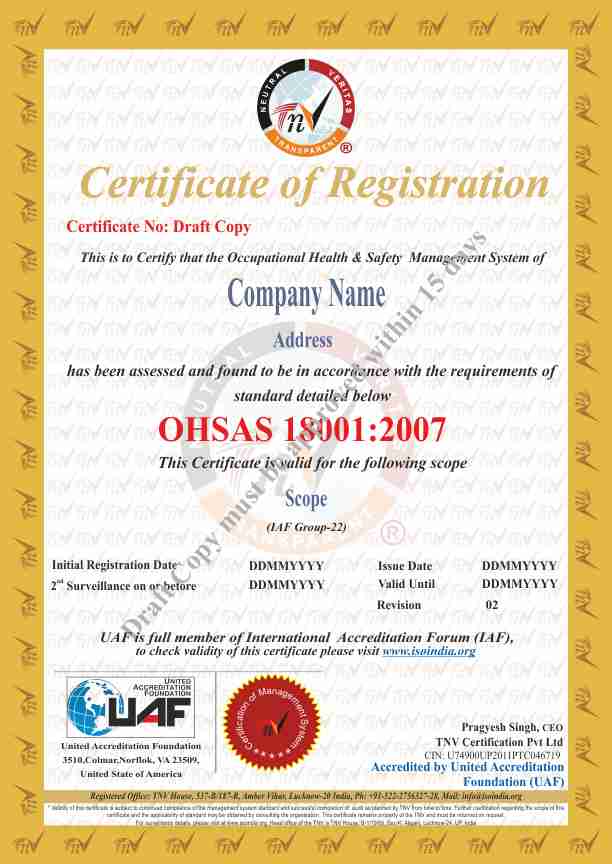
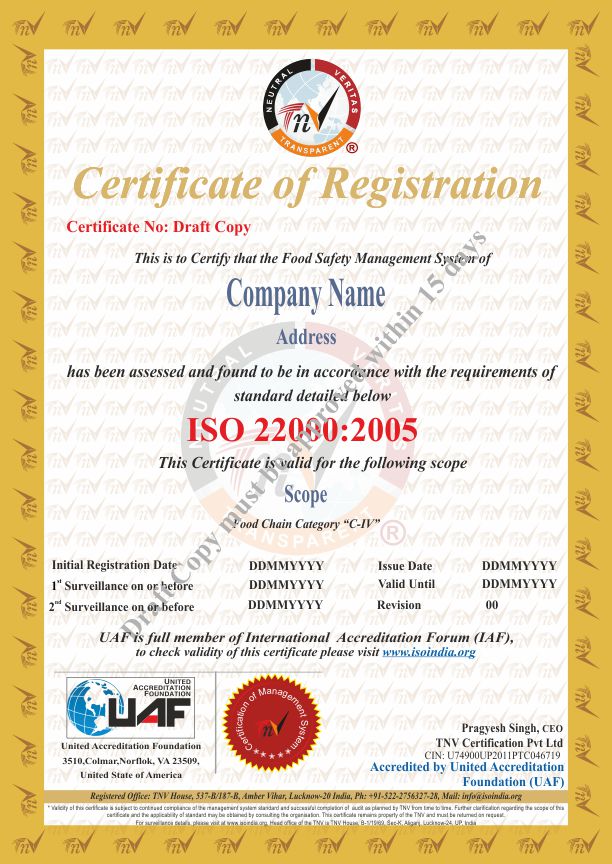
.jpg)
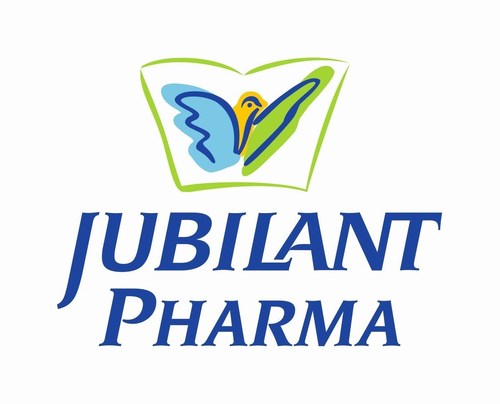 Sanjeev Sharma
Sanjeev Sharma
We are Certified by TNV since last 6 years and we are absolutely happy and satisfied with the systematic approach of the Team. Best Wishes.
»
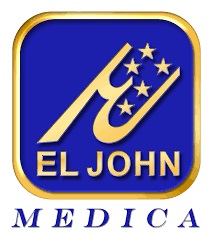 PT. Sun Health Care
PT. Sun Health Care
As always it was an excellent input that we got from TNV, looking forward to continuing a relationship with them. The assessment was very much a structured approach. Our team learned a lot Ari Rahmawati Director of PT Sun Health Care (El John Medica) »
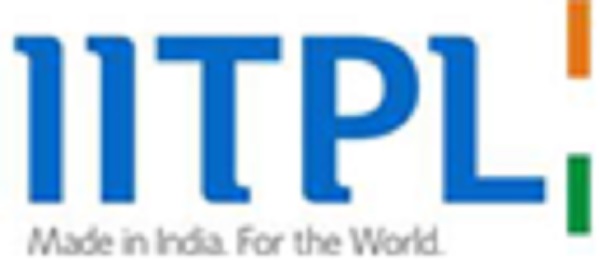 Innovation Imaging Technologies Pvt. Ltd
Innovation Imaging Technologies Pvt. Ltd
"May I take this opportunity to thank you for all your help in the arrangements and organisation for the Training of MD QMS Lead Auditor Certification Course attended. The course was very informative and structured to our requirements. I feel that the relationship that has been b »
 SSP Tech Consultancy Malaysia
SSP Tech Consultancy Malaysia
SSP Tech Consultancy Malaysia is so proud on the long lasting relationship with TNV Certification PVT LTD.
We have been working with TNV since 2010 and there were more than 80 clients have been certified in the field of ISO9001 , ISO14001, ISO45001 & ISO 13485.
We thank you For »
 Maria P. Belyanchikova
Maria P. Belyanchikova
Dear Sir,
We kindly express gratitude for your
outstanding service and long-lasting
cooperation.
Since 2014 our companies in Russia, Moscow,
and United Arad Emirates, Dubai, have several
times ordered certification, surveillance and
audit from TNV Certification Pvt LTD and »
 Unnikrishnan Narayanan Namboodiri
Unnikrishnan Narayanan Namboodiri
Dear Sir,
It is with great pleasure that we at Inspirit Safety Solutions Pvt Ltd, are conveying our gratitude and appreciation to TNV Certification Pvt Ltd for providing the best of services in the domain of
Management System trainings and certifications by accepting us as an a »

I have developed a great relationship with TNV Certification Pvt LTD.
I have undergone a few trainings with TNV training team & have
found their approach to be a highly professional & committed to
providing quality trainings & certifications. I am glad that I also have
had th »







